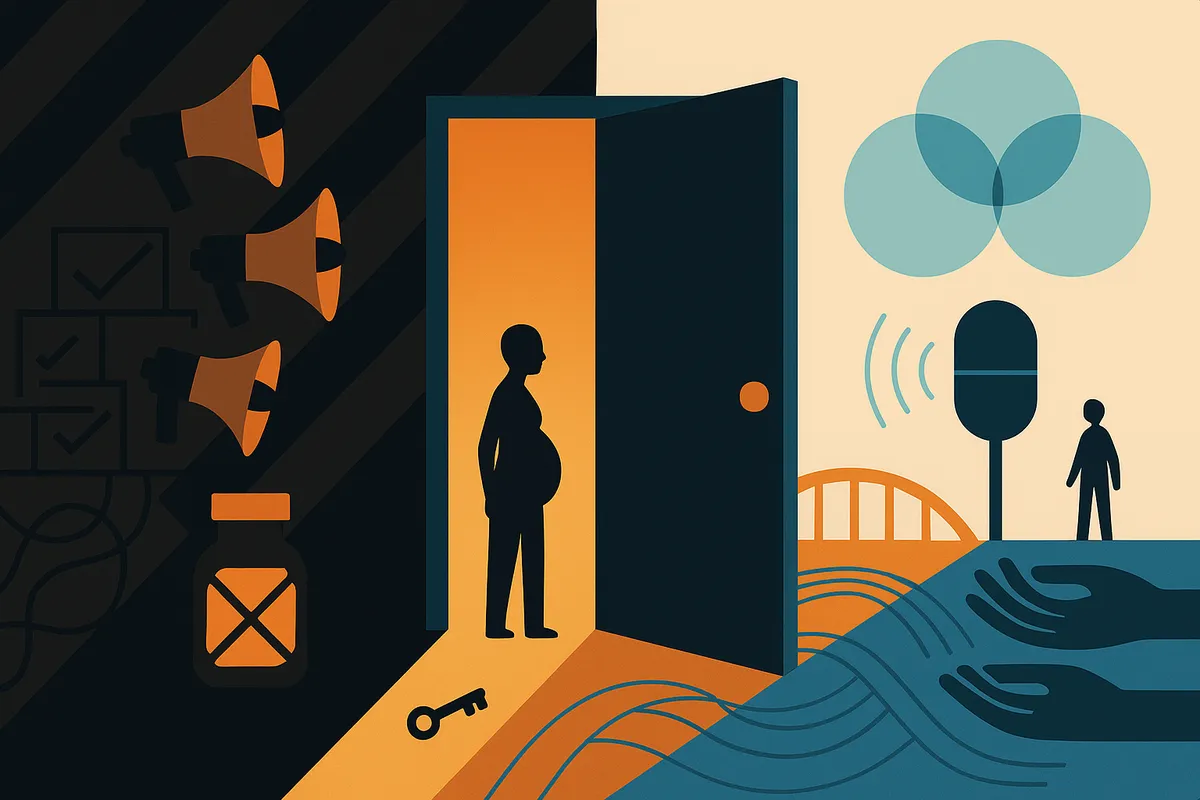Trump’s Tylenol Gambit and the Fight Over Autism’s Meaning
 Media backlash and lived voices expose the gap between politics and reality
Media backlash and lived voices expose the gap between politics and reality
Donald Trump’s declaration that pregnant women should avoid Tylenol because it might cause autism landed with the weight of a campaign stunt, not medical insight. Flanked by Robert F. Kennedy Jr., Mehmet Oz, and others, he announced a “course correction” on autism research. The Association of American Physicians and Surgeons (AAPS) endorsed the move, framing autism as a public health crisis that demands answers.
For many, the announcement sounded less like science and more like political theater. The claim that acetaminophen causes autism is unsupported by evidence. Yet by elevating fringe theories into official policy space, Trump and his allies turned autism into a tool for distraction and control.
AAPS: Fringe Medicine Dressed as Authority
The AAPS has long stood at the edge of medical legitimacy. The group opposes Medicare, has published papers denying climate change, and has amplified vaccine-autism myths for years. By presenting alongside Trump, the AAPS gained the sheen of institutional weight even as it recycled debunked ideas.
The gambit is clear: recast autism not as diversity but as crisis. Strip away scientific consensus, present mothers as victims of hidden dangers, and offer Trump as the brave leader who refuses taboos. It’s not medicine. It’s a performance in authoritarian logic.
Guardian Readers Call Rubbish
The Guardian’s coverage of the backlash captured the fury of medical professionals, pregnant people, and autistic readers. One called Trump’s claim “utter rubbish.” Another noted the announcement’s fascist undertones, comparing it to leaders who historically sowed distrust in science to consolidate power. Autistic readers described the distress of hearing their existence treated as tragedy, a condition to be prevented at all costs.
By amplifying those voices, the Guardian positioned itself as a protective ally. It named the harm without legitimizing the falsehood.
When Rolling Stone Becomes the Adult in the Room
Rolling Stone — better known for music rankings than medical clarity — published a sharp rebuke. Their reporting underscored how Trump and RFK Jr. are recycling eugenic tropes, calling autism an epidemic to be eliminated. Experts like Dr. Monique Botha dismantled the Tylenol claim with plain science. Journalists like Eric Garcia pointed out that the fixation on causes is a return to the blame game, one that helps no autistic person.
It says something about our current landscape when Rolling Stone is offering clearer science and ethics than the White House. The absurdity underlines the stakes: the institutions meant to protect public health are now advancing stigma, while cultural outlets are left defending evidence and dignity.
Families Want Support, Not Cures
USA Today offered another corrective by talking with autistic adults and families. Their stories cut through the rhetoric. Melissa Chabot described her son’s love of building clocks and insisted, “It’s not a disease. It’s a different way of being.” Amber Gustafson emphasized compassion over cure: “Who am I to say that he needs to be fixed? There was nothing broken about him.”
These voices highlight what’s missing from Trump’s gambit. Parents and autistic adults aren’t asking for miracle drugs or scapegoats. They are asking for speech therapy, adult services and a cultural shift that stops blaming mothers for their children’s neurology. They are asking for dignity.
The Real Question
Trump’s Tylenol play is not about science. It’s about raw power. By framing autism as crisis, he creates a stage where fear replaces fact, and loyalty replaces reason. AAPS gets to launder old conspiracies. Pregnant women get saddled with more anxiety. Autistic people get cast once again (sigh!) as tragedies to be prevented.
The backlash — from Guardian readers to Rolling Stone editors to families in USA Today — shows a counter-narrative. Autism is not a disease. It does not need eliminating. The real crisis is the relentless attempt to cynically use autistic lives as political currency.
What would it look like if public health leaders stopped chasing myths and started listening to the families and autistic adults who already know autism is not a disease? Imagine the possibilities.